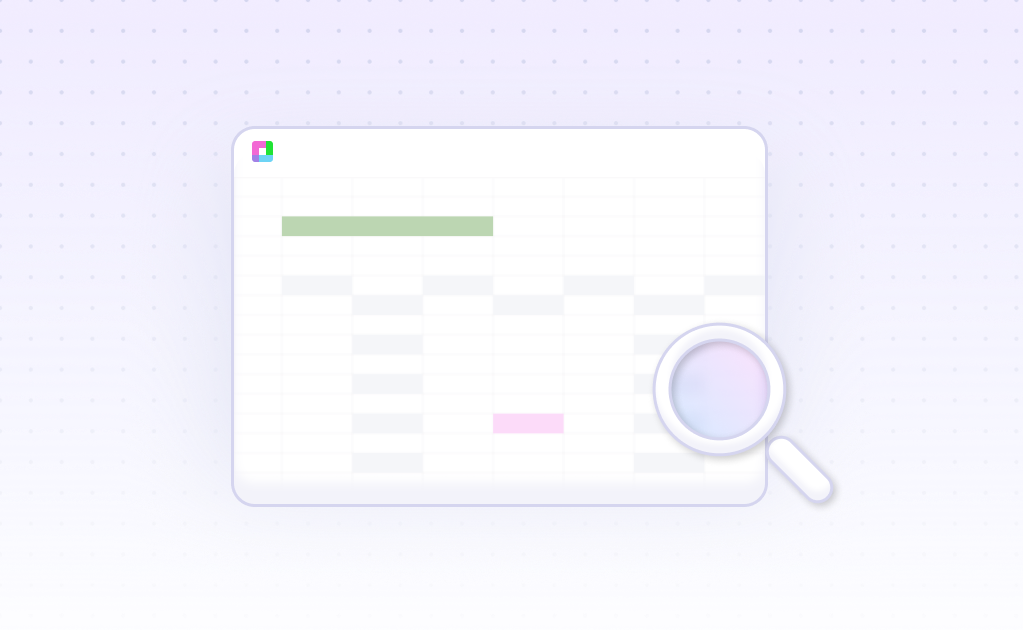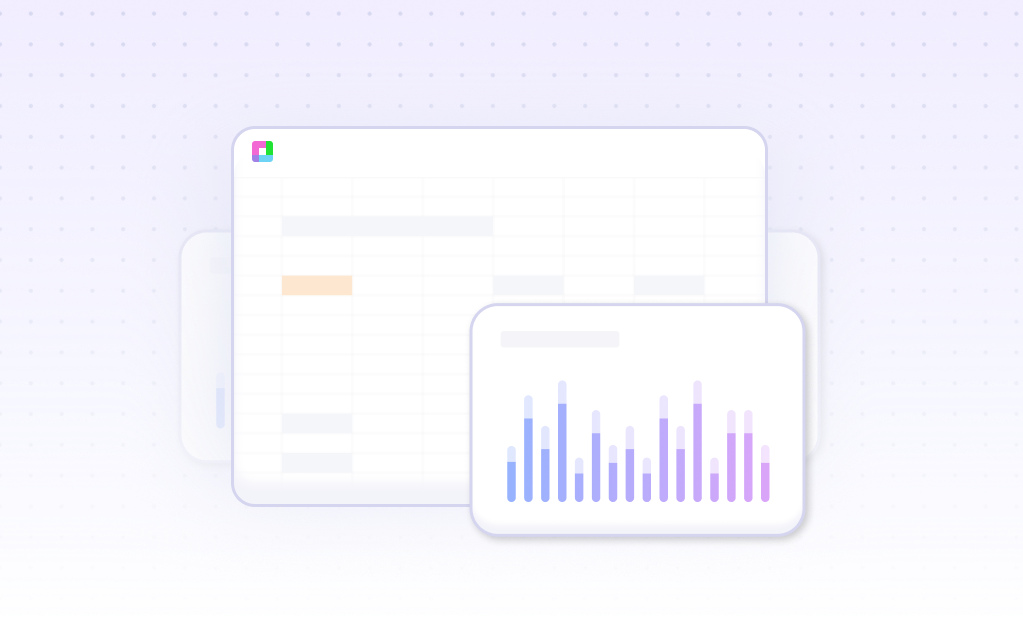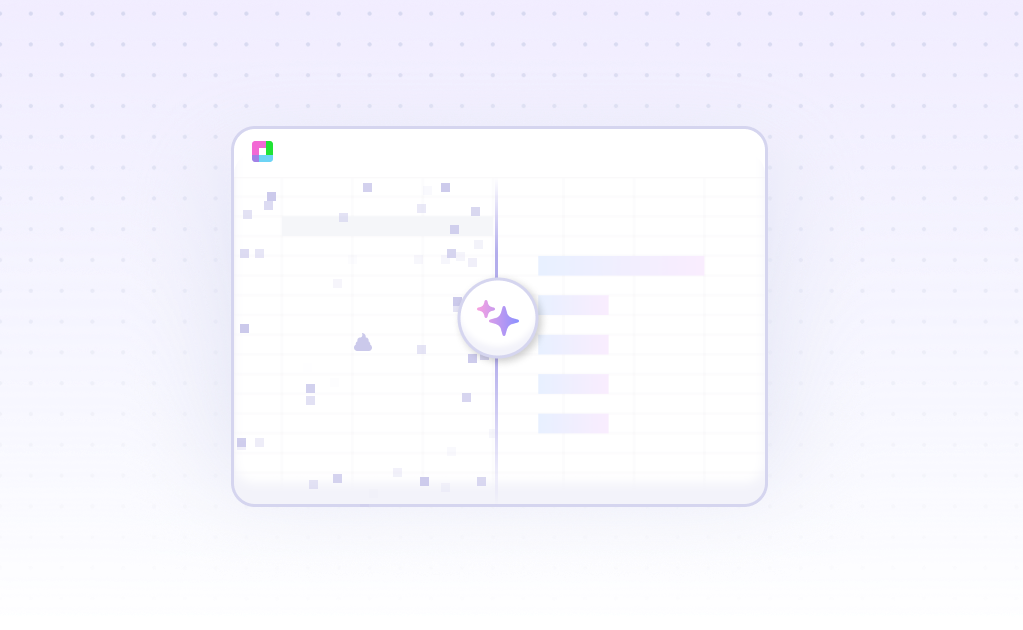
Materials engineering analysis involves complex calculations, multiple data sources, and intricate property relationships. Whether you're evaluating tensile strength, analyzing fatigue data, or comparing thermal conductivity across different alloys, having the right analytical tools makes all the difference.
Sourcetable transforms how engineers approach materials analysis by combining the familiar spreadsheet interface with AI-powered insights, making complex engineering calculations accessible and efficient.
Essential Tools for Materials Analysis
Everything you need to analyze material properties and performance data in one platform
Mechanical Property Analysis
Analyze stress-strain curves, calculate yield strength, and evaluate material toughness with automated calculations and visualizations.
Thermal Performance Modeling
Model heat transfer properties, thermal expansion coefficients, and temperature-dependent behaviors across material samples.
Fatigue Life Prediction
Calculate fatigue life cycles, analyze S-N curves, and predict material failure under cyclic loading conditions.
Comparative Material Selection
Compare multiple materials side-by-side using weighted criteria, cost analysis, and performance benchmarking.
Statistical Quality Control
Perform statistical analysis on material test data, identify outliers, and ensure quality standards compliance.
Corrosion Rate Analysis
Model corrosion behavior, calculate degradation rates, and predict material lifespan in various environments.
Real-World Materials Engineering Applications
See how engineers use Sourcetable for critical materials analysis across industries
Aerospace Component Analysis
A aerospace engineering team needed to evaluate titanium alloy properties for aircraft structural components. They used Sourcetable to analyze tensile test data from 200+ samples, calculate safety factors, and generate compliance reports for certification. The AI assistant helped identify optimal heat treatment parameters that improved strength-to-weight ratios by 15%.
Automotive Material Selection
An automotive manufacturer was selecting materials for electric vehicle battery housings. Using Sourcetable, they compared thermal properties, weight, cost, and safety ratings across 50 different material options. The analysis revealed that a composite material offered the best balance of thermal management and crash protection.
Infrastructure Steel Analysis
A structural engineering firm analyzed weather exposure data and steel degradation rates for bridge maintenance planning. Sourcetable's correlation analysis identified key environmental factors affecting material longevity, helping extend bridge lifespan by 20 years through targeted protective measures.
Medical Device Material Testing
A biomedical device company used Sourcetable to analyze biocompatibility test results across different polymer materials. The platform's statistical tools helped identify materials with the lowest inflammatory response while maintaining required mechanical properties for implantable devices.
Electronics Thermal Management
A semiconductor company analyzed thermal interface materials for high-performance processors. Sourcetable helped model heat dissipation across different material configurations, leading to a 30% improvement in thermal performance while reducing material costs.
Construction Material Optimization
A construction engineering team evaluated concrete mix designs using Sourcetable to analyze compressive strength, durability, and cost data. The analysis identified optimal aggregate ratios that increased structure lifespan while reducing material costs by 12%.
How Materials Engineering Analysis Works in Sourcetable
A streamlined workflow that transforms raw material data into engineering decisions
Import Test Data
Upload material test results from tensile tests, hardness measurements, thermal analysis, and other characterization methods. Sourcetable automatically recognizes common engineering data formats and organizes your information intelligently.
Apply Engineering Calculations
Use built-in engineering formulas or create custom calculations for material properties. Calculate yield strength, elastic modulus, fracture toughness, and other critical parameters with automatic unit conversions and error checking.
Visualize Material Behavior
Generate stress-strain curves, temperature-property relationships, and comparative charts. Create publication-ready graphs that clearly communicate material performance to stakeholders and regulatory bodies.
Analyze with AI Insights
Ask the AI assistant to identify trends, suggest optimal processing parameters, or explain material behavior patterns. Get instant insights like 'Which alloy composition provides the best corrosion resistance?' or 'What heat treatment maximizes toughness?'
Generate Engineering Reports
Create comprehensive material analysis reports with automated calculations, statistical summaries, and professional formatting. Include material property tables, test method documentation, and compliance certifications.
Why Engineers Choose Sourcetable for Materials Analysis
Discover the key benefits
Engineering-Specific Functions
Pre-built formulas for common materials calculations including stress analysis, fatigue life prediction, and thermal modeling. No need to recreate complex engineering equations.
AI-Powered Insights
Ask natural language questions about your material data and get instant answers. 'What's causing the strength variation in batch 47?' or 'Which processing temperature gives optimal properties?'
Industry Standards Integration
Built-in support for ASTM, ISO, and other engineering standards. Automatic compliance checking and standardized reporting formats for regulatory submissions.
Collaborative Analysis
Share analysis results with design teams, quality control, and management. Real-time collaboration ensures everyone works with the latest material data and specifications.
Frequently Asked Questions
Can Sourcetable handle large materials testing datasets?
Yes, Sourcetable can process thousands of material test data points efficiently. Whether you're analyzing tensile test results from hundreds of specimens or thermal cycling data over extended periods, the platform handles large datasets while maintaining fast calculation speeds and responsive visualizations.
Does Sourcetable support engineering units and conversions?
Absolutely. Sourcetable includes automatic unit conversion for all common engineering units including stress (MPa, psi, ksi), temperature (°C, °F, K), and material properties. You can work in your preferred units while collaborating with teams using different unit systems.
How does the AI assistant help with materials analysis?
The AI assistant understands materials engineering terminology and can help interpret test results, suggest analysis approaches, and explain material behavior. Ask questions like 'Why did the impact strength decrease at low temperatures?' or 'What processing parameters optimize this alloy's properties?'
Can I create custom material property databases?
Yes, you can build and maintain custom material property databases within Sourcetable. Store material specifications, test results, supplier information, and processing parameters in organized databases that integrate seamlessly with your analysis workflows.
Is Sourcetable suitable for regulatory compliance reporting?
Definitely. Sourcetable helps generate compliant reports for various industry standards including ASTM, ISO, and FDA requirements. The platform maintains audit trails, supports statistical analysis requirements, and produces professional documentation suitable for regulatory submissions.
How does Sourcetable compare to specialized materials software?
Sourcetable combines the flexibility of spreadsheets with AI-powered analysis, making it more accessible than specialized software while offering powerful materials analysis capabilities. It integrates well with existing workflows and doesn't require extensive training or expensive licenses.
Frequently Asked Questions
If your question is not covered here, you can contact our team.
Contact Us




